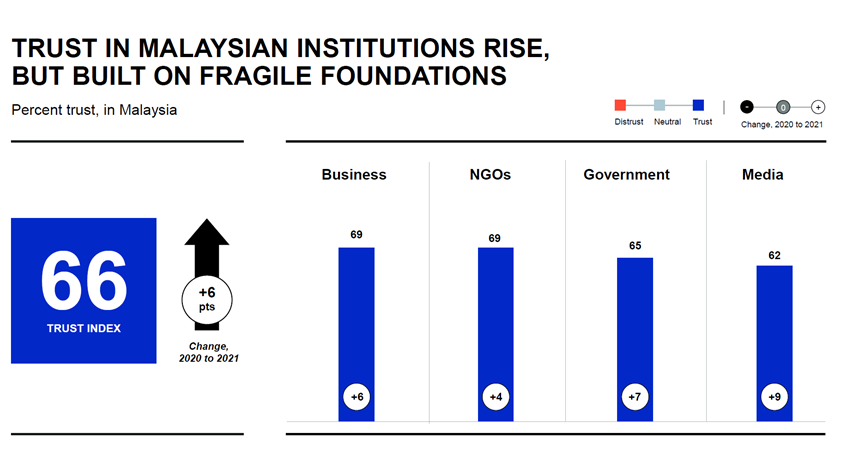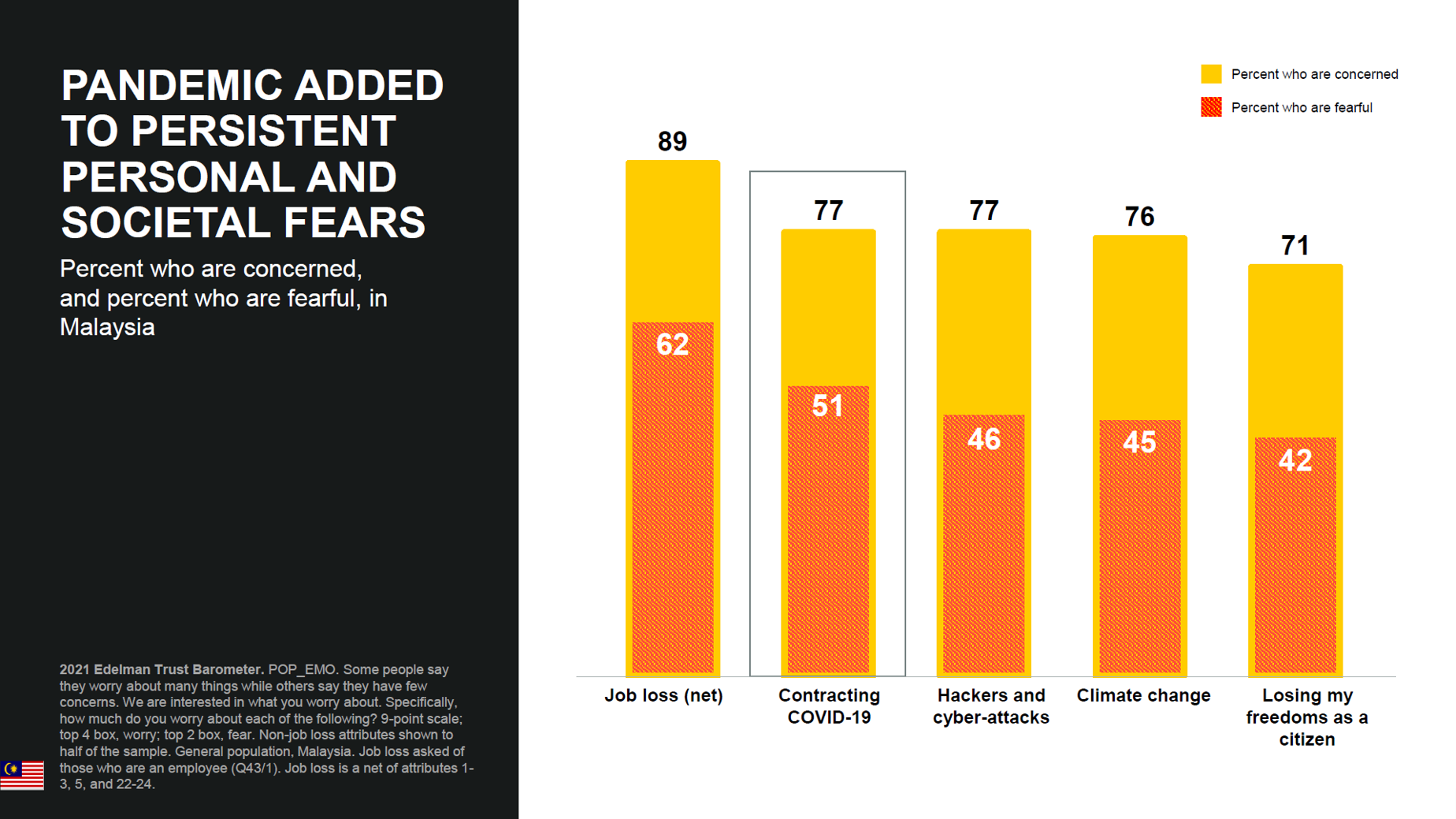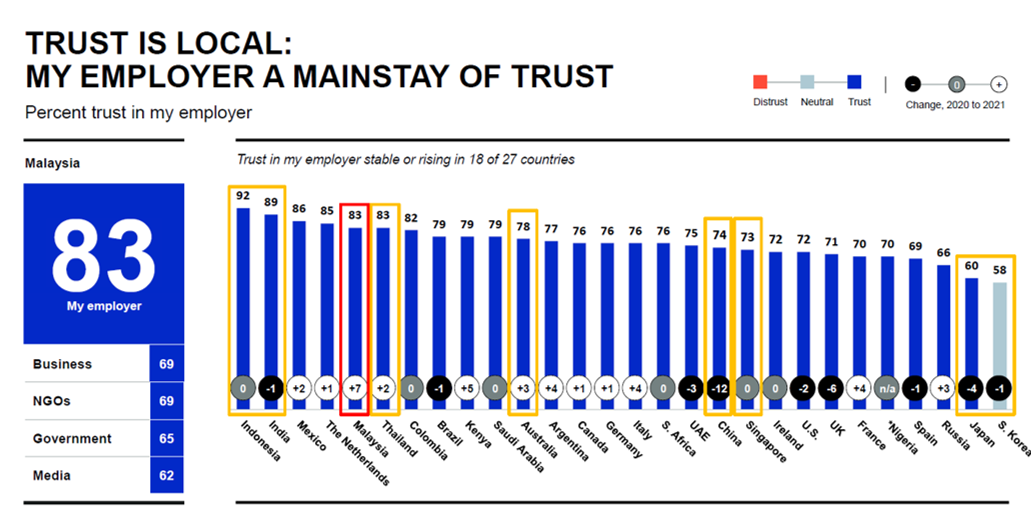Despite a challenging year due to social and economic uncertainties, the 2021 Edelman Trust Barometer revealed that trust in all Malaysian institutions – government, business, media, and NGOs – has increased as a result of assertive action in response to the pandemic. However, in the era of information bankruptcy, trust remains fragile and dependent on how institutions fair in leading with real world actions in the post-pandemic era.
Trust in Malaysia
The 2021 Edelman Trust Barometer saw Malaysia achieve an average Trust Index score of 66 pts, rising by 6 pts from 2020 and climbing two spots to the 7th position on the Global Trust Index ranking. Malaysia’s Trust Index was higher than the APAC (62 pts) and Global (56 pts) averages. The country’s encouraging results were propelled by affirmative institutional action in managing the unprecedented COVID-19 pandemic challenge.

Nonetheless, the survey also highlighted that trust is built on fragile foundations, as escalating pandemic fears have created a dramatic increase in the urgency for these institutions to find solutions for critical societal problems. When asked whether certain issues have become more or less important since last year, improving the healthcare system has become 62 pts more important, along with addressing poverty (53 pts) and improving our education system (53 pts). This suggests that the most foundational building blocks of society need a reset.
Malaysians More Worried About Job Loss Than Contracting COVID-19
Edelman’s study has shown that contracting COVID-19 is not the concern Malaysians are most worried about (77%). A larger percentage of Malaysians are both concerned and fearful about job loss (89%), followed closely by cyber security (77%) and climate change (76%). In a year of mandatory stay-at-home orders, 71% are also worried about losing their personal freedoms.

Additionally, the pandemic is not only a concern in itself, but it has also heightened the concerns Malaysians have had before the pandemic. 65% worry that the pandemic will accelerate job loss due to automation, while more than half of surveyed respondents (53%) have witnessed layoffs or reductions in the workforce of their company they work for.
This trend is not unique to Malaysia alone, as inequities are deepening around the world with over 62% of the global population agreeing that those with less money, education and fewer resources seem to be unfairly burdened with the most suffering, risk of illness and need to sacrifice during the ongoing pandemic. The Malaysian government’s intervention with various stimulus packages for the B40 group over the past year is thus timely in addressing these concerns.
A New Mandate for Business & CEOs
Amidst this landscape of information distrust, businesses have emerged as the single most credible and trusted source of information for most Malaysians, with 66% voting ‘My Employer’ as the most trusted source of information to help navigate the crisis, even higher than government communications (60%) and news media reports (63%).

The greatest opportunity for businesses to gain trust is by serving as a guardian of information quality, which increased the likelihood of trust by 5.8%. Additionally, business is expected to act for the long term: embracing sustainability (+5.7%), delivering a robust health and safety response to COVID-19 (+4.8%), driving economic prosperity (+4.7%) as well as focusing on long-term thinking over short-term profits (+4.6%) are actions associated with an increase in trust.

